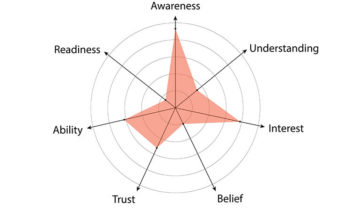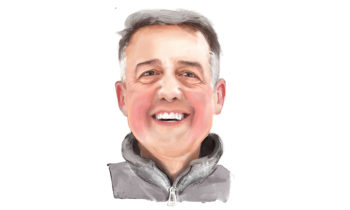Trust is Everything
Trusting the person you’re going to engage with is the whole ball of wax…There’s an information asymmetry in the world of expert services.To sustain and grow our practices, those of us who offer professional services must be trustworthy.
True Expertise is a Credence Good
Not all goods and services demand the same level of trust. Trust is paramount in professional services because real expertise is a credence good. That means the risk of exploitation of the buyer by the seller is high. According to Wikipedia,A credence good is a good whose utility impact is difficult or impossible for the consumer to ascertain. In contrast to experience goods, the utility gain or loss of credence goods is difficult to measure after consumption as well. The seller of the good knows the utility impact of the good, creating a situation of asymmetric information.As Tom explains, the professional service provider diagnoses the disease and the cure. The cost of the treatment is often high, and the consequences of failure substantial. As a result, demonstrated competence is a necessary—but insufficient—condition for engagement. Clients must trust you.
Types of Trust
Kent Grayson is a professor at Northwestern University who studies information asymmetries and trust as a member of The Trust Project. He highlights three factors that determine the degree of trust:- Competence—the perceived capacity of the service provider to do what she says she can do
- Honesty—the perception of truthfulness and commitment to do what she says she will do
- Benevolence—the believe the service provider will not exploit information asymmetries to your disadvantage
- Will you do you what you say you’ll do?
- Will you have my back?
The Calculus of Trust
Trust is an accumulation that depends on our behaviors over time. As Tom notes, “Do you have my interests at heart? The thing that really fuels that kind of trust is experience.” Furthermore, trust is easier to destroy than to build.
Trust is an accumulation over time.
Being Trustworthy
Trust isn’t earned. That is, our behaviors can’t demand obligatory reciprocation in the form of trust. Trust must be granted. However, we can—and must—be consistently trustworthy. The folks at Trusted Advisor offer these principals of trust-based selling, which serve as excellent guideposts:- Client orientation for the sake of the client, not the consultant. “Client focus” for the seller’s sake is the bogus focus of a vulture.
- A medium- to long-term perspective. Focus on the relationship, not the transaction.
- A habit of collaboration. Don’t speculate about what clients are thinking—ask them.
- A willingness to be transparent. Nothing destroys client trust faster than the consultant who appears to be withholding information or trying to control the client.
Money Talks, and Bullshit Walks
Again, trust is such a central feature of professional service relationships because of information asymmetry. A key way to demonstrate trustworthiness is to better align your interests with those of your client. You can do so by having skin in the game.Skin in the game can take many forms. Not all currencies are money. Some forms appeal to the head, others the heart.
Demonstrating emotional authenticity and intimacy is difficult for many of us who wish to be perceived as being professional. That’s because authenticity and intimacy are risky. As Bill Noonan explains,
Defensive routines are patterns of interpersonal interactions people create to protect themselves from embarrassment and threat. The conditions of threat and embarrassment arise when our abilities are negatively evaluated by a colleague or authority figure.
Being vulnerable is uncomfortable. Visible gaps in our emotional armor can be interpreted as weakness. Weakness can be exploited by others. However, by abandoning our defenses we demonstrate trust. Such a gesture can go a long way toward evoking trust in return.
For a more hard-headed approach, consider guarantees. David Maister—co-author (along with the aforementioned Charles Green) of the classic book, The Trusted Advisor, and a man How Clients Buy co-author Doug Fletcher considers a mentor—advocates professional service providers offer unconditional satisfaction guarantees to their clients.




